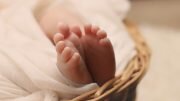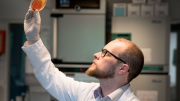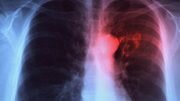A researcher duo from University of Oslo went through 5,000 DNA samples of infant feces to reveal how bacterial community in the infant’s bowel changes.
The goal is to identify how eco communities in bowel change during the child’s first year of life, according to the research magazine Apollon.
– Broadly speaking, we can say that there exists a child and an adult profile of intestinal flora.
The whole idea of our work is to investigate the normal development of bacterial diversity in the gut and in particular, how the intestinal flora changes when baby starts on solids, getting medicines such as antibiotics, vaccinations or is dragged on trips abroad, says researcher Pål Trosvik from the Centre for Ecological and evolutionary synthesis (CEES) at the University of Oslo to the research magazine.
Along with Eric de Muinck, he will create a mathematical model based on daily stool samples from twelve babies through an entire year.
To get variation in the sample, researchers have secured the feces of children including those with and without pets, and feces of a pair of twins.
Since children are exposed to bacteria from the mother’s stool at birth, they should also compare the feces of children born with and without cesarean.
The survey is the largest of its kind, over a hundred times more extensive than previous studies of children stool.
Source: NTB scanpix / Norway Today



